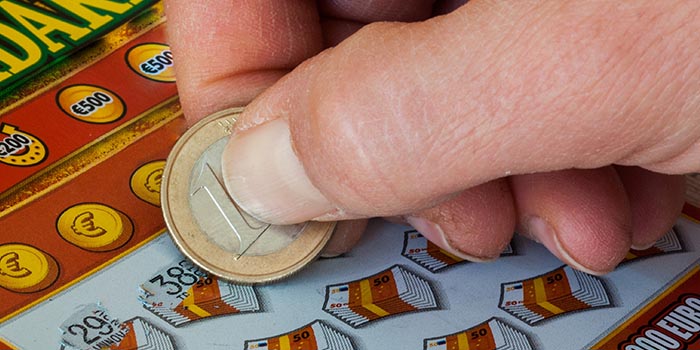- Casino
- By State
- Alabama
- Alaska
- Arizona
- Arkansas
- California
- Colorado
- Connecticut
- Delaware
- Georgia
- Florida
- Hawaii
- Idaho
- Illinois
- Indiana
- Iowa
- Kansas
- Kentucky
- Louisiana
- Maine
- Massachusetts
- Maryland
- Michigan
- Minnesota
- Mississippi
- Missouri
- Montana
- Nebraska
- Nevada
- New Hampshire
- New Jersey
- New Mexico
- New York
- North Carolina
- North Dakota
- Ohio
- Oklahoma
- Oregon
- Pennsylvania
- Rhode Island
- South Carolina
- South Dakota
- Tennessee
- Texas
- Utah
- Vermont
- Virginia
- Washington
- West Virginia
- Wisconsin
- Wyoming
- By State
- Slots
- Poker
- Sports
- Esports
Fact-checked by Stoyan Todorov
Gamres and Carleton Professors Make Addiction Prevention Breakthrough
A groundbreaking study by Carleton University professors together with Gamres has unveiled Positive Play Quiz, an innovative tool designed to promote responsible gambling

A pioneering study spearheaded by Dr. Nassim Tabri and Dr. Michael Wohl from Carleton University’s Department of Psychology in collaboration with Dr. Richard Wood from responsible gambling-focused research and consultancy company Gamres has been published in Addiction, a prestigious journal in the field of addiction research.
The study unveils the Positive Play Quiz, an innovative tool designed by Gamres to advance responsible gambling initiatives.
The research, supported by an International Center for Responsible Gaming Seed Grant, examined the way personalized and normative feedback has the power to enhance Gambling Literacy (knowledge of gambling) while influencing responsible gambling behaviors, including intentions, self-confidence, and tool usage.
Over 4,000 Canadians Participated in the Study
Participants for the study were sourced from the AskingCanadians panel, a platform that offers consumers the opportunity to participate in various research studies.
Those who confirmed they were gamblers proceeded with a brief questionnaire to assess their eligibility, a method that minimizes falsification of eligibility and reduces self-selection bias, thus strengthening the study’s validity.
Between June and August 2023, eligible participants who consented to the study were randomly assigned to either the intervention group or the control group.
After the initial questionnaire, participants received loyalty points from AskingCanadians and were asked for consent to participate in a follow-up assessment three months later.
Those who agreed completed another online questionnaire, received more loyalty points, and were debriefed on the study, with consent obtained to use their data.
The randomized controlled trial, which involved over 4,000 adult Canadians, revealed that those who received feedback through the Positive Play Quiz exhibited notable improvements in their understanding of gambling mechanics, odds, and responsible gambling tools.
The same participants also proved a greater willingness and confidence to engage in responsible gambling behaviors compared to those who did not receive the quiz feedback.
Impressive Breakthrough for the Industry
The study’s findings are a significant breakthrough in promoting responsible gambling, especially as online gambling continues to rise globally.
By addressing widespread misconceptions about game mechanics and odds, which are factors that are often linked to problematic gambling, the Positive Play Quiz provides players with the exact knowledge they need to make informed choices and reduce the likelihood of engaging in risky behaviors.
While there were only modest changes in gambling habits over the three-month follow-up period, the study still represents a crucial step forward in fighting gambling addiction.
It highlights the potential of innovative feedback tools in fostering behavioral change, providing promising solutions to an increasingly urgent public health issue.
Last month, we reported on a study by The Lancet Public Health Commission that highlighted the fast expansion of the gambling industry, fueled by easy online access and the widespread legalization of gambling, which pose significant health and social risks.
According to the commission, global consumer losses from gambling could reach $700 billion by 2028.
Related Topics:
After finishing her master's in publishing and writing, Melanie began her career as an online editor for a large gaming blog and has now transitioned over towards the iGaming industry. She helps to ensure that our news pieces are written to the highest standard possible under the guidance of senior management.
More Articles





Sports
July 10, 2025
NJ Bans Sportsbook Deals With Public Colleges

Business
July 10, 2025
DoubleDown Acquires Whow Games in €65 Million Deal

Casino
July 10, 2025
Cirsa Shares Hold Steady in Lukewarm Spanish IPO Debut

Casino
July 10, 2025
Mohegan Sun Guest Wins $2M Gambling in Spanish 21













